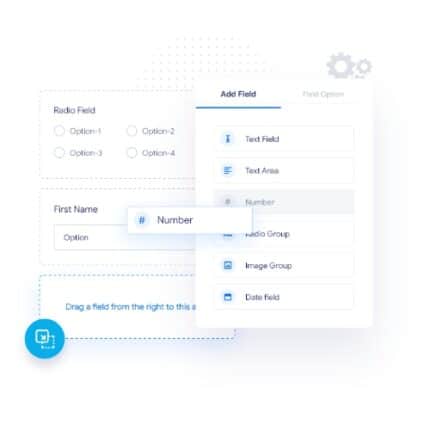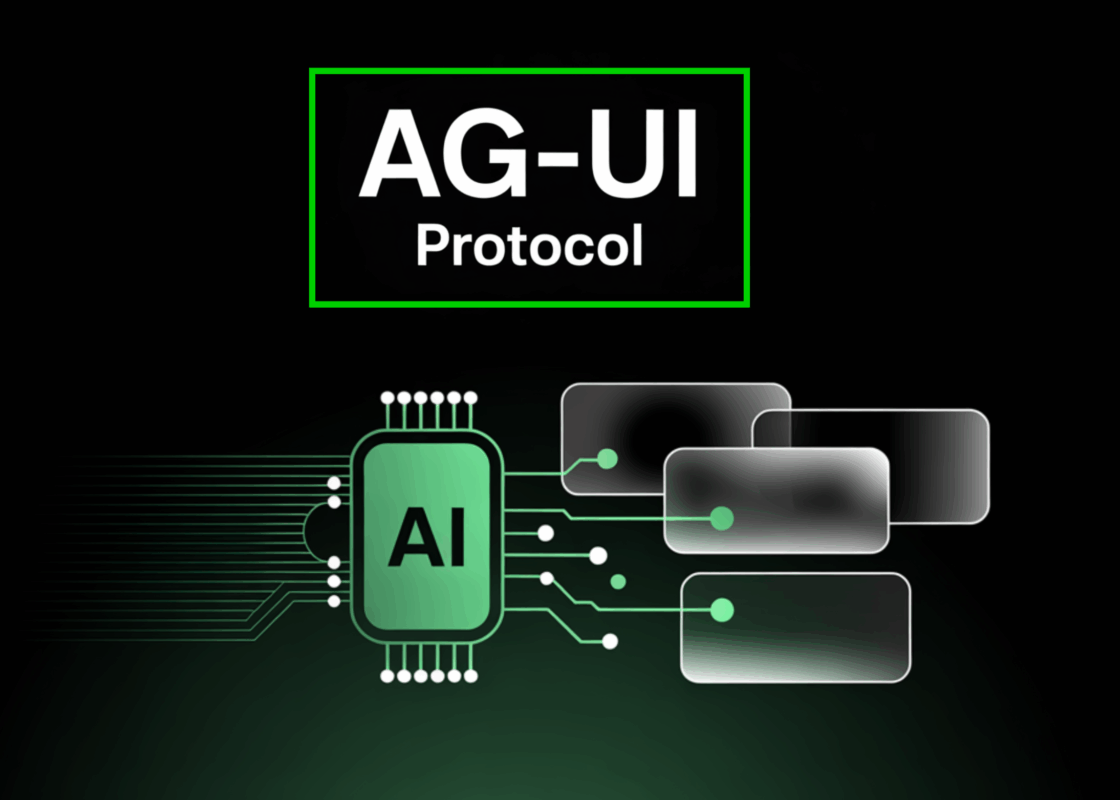Blog
The Download: AI-designed viruses, and bad news for the hydrogen industry

Introduction
In today’s rapidly advancing technology landscape, the emergence of artificial intelligence (AI) has revolutionized various industries, from healthcare to finance. However, there are dark implications associated with the rise of AI that have begun to surface, including the creation of AI-designed viruses. Concurrently, the hydrogen industry faces challenges that could alter its trajectory. This article delves into these pressing issues, providing insights into AI’s dual role as both a benefactor and a potential threat.
The Rise of AI-Designed Viruses
Understanding AI’s Capabilities
AI systems excel in pattern recognition and data processing, enabling them to uncover intricate relationships and generate solutions across numerous fields. This capability extends to the realm of cybersecurity, where AI can streamline defenses and detect threats. However, this same technology can be harnessed by malicious actors to create sophisticated viruses.
The Threat Landscape
The advent of AI-designed viruses poses unique challenges for cybersecurity. Unlike traditional malware, which often relies on pre-defined scripts, AI-generated viruses can adapt to countermeasures dynamically. These attacks not only disrupt operations but can also lead to significant financial losses and compromises of sensitive information.
Case Studies and Incidents
Recent incidents highlight the severity of this issue. For example, researchers have documented instances where AI tools have been used to develop autocorrect features within malicious software. Such enhancements enable viruses to infiltrate systems more efficiently, bypassing conventional security measures. Staying ahead of these evolving threats requires continuous investment in more advanced cybersecurity strategies and technologies.
The Hydrogen Industry: Challenges Ahead
Current Landscape of Hydrogen Energy
Hydrogen has emerged as a promising clean energy alternative, offering potential solutions to the global energy crisis. With its ability to generate electricity while producing only water as a byproduct, the hydrogen sector has gained considerable traction. Governments and corporations alike are investing in hydrogen production, storage, and distribution technologies, anticipating significant environmental benefits.
Emerging Challenges
Despite its potential, the hydrogen industry faces substantial hurdles that could impede its growth.
Economic Viability
One of the principal challenges is economic feasibility. Currently, hydrogen production, especially green hydrogen, can be expensive compared to other energy sources. The cost of renewable energy used in electrolysis, coupled with the infrastructure needed to transport and store hydrogen, contributes to a complex economic landscape. Investments in research and development are essential to drive down these costs and make hydrogen a scalable option.
Market Competition
Competition within the energy sector adds another layer of complexity. As renewable energy technologies like solar and wind become more efficient and less expensive, they may overshadow hydrogen’s potential as a primary energy source. This competition necessitates continuous innovation within the hydrogen sector to maintain its competitive edge.
Regulatory Hurdles
Regulatory frameworks also present challenges. Governments play a critical role in shaping the energy landscape through policies and incentives. However, the lack of standardized regulations specific to hydrogen production and use can create uncertainties for investors and companies. Establishing clear guidelines can help facilitate growth in this area.
The Intersection of AI and Hydrogen Technology
Potential Synergies
While challenges abound, the integration of AI into the hydrogen industry presents opportunities for innovation. AI can optimize hydrogen production processes, improve predictive maintenance for storage facilities, and enhance supply chain management. By harnessing AI capabilities, companies can reduce operational costs and enhance efficiency.
Case Examples
Several companies are exploring AI-driven solutions in hydrogen technology. For instance, AI algorithms can analyze vast amounts of data to optimize electrolysis processes, making them more efficient. Additionally, AI can aid in forecasting demand for hydrogen, allowing companies to adjust operations proactively.
The Future Outlook: Balancing Innovation with Security
Addressing Cybersecurity in Energy Sectors
For the hydrogen industry to thrive, it must address the cybersecurity risks associated with integrating AI technologies. A robust cybersecurity framework is essential to protect critical infrastructure from AI-designed threats. This includes implementing adaptive security solutions that can dynamically respond to emerging threats and regular training for personnel on the latest security protocols.
Advocacy for Responsible AI Development
Moreover, there is an urgent need for collaboration across sectors to promote responsible AI development. By establishing ethical guidelines and fostering a shared commitment to cybersecurity, stakeholders can ensure that AI serves as a tool for progress, rather than a weapon for destruction.
Conclusion
The dual nature of AI—capable of both driving innovation and posing risks—highlights the need for vigilance in its application. The hydrogen industry’s potential as a clean energy source is accompanied by significant challenges, underscoring the importance of strategic planning and investment in both technology and security. As we navigate this complex landscape, balancing innovation with the necessary protective measures will be crucial. By fostering collaboration and prioritizing responsible practices, industries can unlock the benefits of AI while safeguarding against its pitfalls.
Elementor Pro
In stock
PixelYourSite Pro
In stock
Rank Math Pro
In stock
Related posts
Building a WordPress Plugin | Jon learns to code with AI
How to add custom Javascript code to WordPress website
6 Best FREE WordPress Contact Form Plugins In 2025!
Solve Puzzles to Silence Alarms and Boost Alertness
Conheça AI do WordPress para construção de sites
WordPress vs Shopify: The Ultimate Comparison for Online Store Owners | Shopify Tutorial
Apple Ends iCloud Support for iOS 10, macOS Sierra on Sept 15, 2025
How to Speed up WordPress Website using AI 🔥(RapidLoad AI Plugin Review)
Bringing AI Agents Into Any UI: The AG-UI Protocol for Real-Time, Structured Agent–Frontend Streams
Web Hosting vs WordPress Web Hosting | The Difference May Break Your Site
Google Lays Off 200+ AI Contractors Amid Unionization Disputes
MIT’s LEGO: A Compiler for AI Chips that Auto-Generates Fast, Efficient Spatial Accelerators
Products
-
 Rayzi : Live streaming, PK Battel, Multi Live, Voice Chat Room, Beauty Filter with Admin Panel
Rayzi : Live streaming, PK Battel, Multi Live, Voice Chat Room, Beauty Filter with Admin Panel
$98.40Original price was: $98.40.$34.44Current price is: $34.44.In stock
-
 Team Showcase – WordPress Plugin
Team Showcase – WordPress Plugin
$53.71Original price was: $53.71.$4.02Current price is: $4.02.In stock
-
 ChatBot for WooCommerce – Retargeting, Exit Intent, Abandoned Cart, Facebook Live Chat – WoowBot
ChatBot for WooCommerce – Retargeting, Exit Intent, Abandoned Cart, Facebook Live Chat – WoowBot
$53.71Original price was: $53.71.$4.02Current price is: $4.02.In stock
-
 FOX – Currency Switcher Professional for WooCommerce
FOX – Currency Switcher Professional for WooCommerce
$41.00Original price was: $41.00.$4.02Current price is: $4.02.In stock
-
 WooCommerce Attach Me!
WooCommerce Attach Me!
$41.00Original price was: $41.00.$4.02Current price is: $4.02.In stock
-
 Magic Post Thumbnail Pro
Magic Post Thumbnail Pro
$53.71Original price was: $53.71.$3.69Current price is: $3.69.In stock
-
 Bus Ticket Booking with Seat Reservation PRO
Bus Ticket Booking with Seat Reservation PRO
$53.71Original price was: $53.71.$4.02Current price is: $4.02.In stock
-
 GiveWP + Addons
GiveWP + Addons
$53.71Original price was: $53.71.$3.85Current price is: $3.85.In stock
-
 JetBlog – Blogging Package for Elementor Page Builder
JetBlog – Blogging Package for Elementor Page Builder
$53.71Original price was: $53.71.$4.02Current price is: $4.02.In stock
-
 ACF Views Pro
ACF Views Pro
$62.73Original price was: $62.73.$3.94Current price is: $3.94.In stock
-
 Kadence Theme Pro
Kadence Theme Pro
$53.71Original price was: $53.71.$3.69Current price is: $3.69.In stock
-
 LoginPress Pro
LoginPress Pro
$53.71Original price was: $53.71.$4.02Current price is: $4.02.In stock
-
 ElementsKit – Addons for Elementor
ElementsKit – Addons for Elementor
$53.71Original price was: $53.71.$4.02Current price is: $4.02.In stock
-
 CartBounty Pro – Save and recover abandoned carts for WooCommerce
CartBounty Pro – Save and recover abandoned carts for WooCommerce
$53.71Original price was: $53.71.$3.94Current price is: $3.94.In stock
-
 Checkout Field Editor and Manager for WooCommerce Pro
Checkout Field Editor and Manager for WooCommerce Pro
$53.71Original price was: $53.71.$3.94Current price is: $3.94.In stock
-
 Social Auto Poster
Social Auto Poster
$53.71Original price was: $53.71.$3.94Current price is: $3.94.In stock
-
 Vitepos Pro
Vitepos Pro
$53.71Original price was: $53.71.$12.30Current price is: $12.30.In stock
-
 Digits : WordPress Mobile Number Signup and Login
Digits : WordPress Mobile Number Signup and Login
$53.71Original price was: $53.71.$3.94Current price is: $3.94.In stock
-
 JetEngine For Elementor
JetEngine For Elementor
$53.71Original price was: $53.71.$3.94Current price is: $3.94.In stock
-
 BookingPress Pro – Appointment Booking plugin
BookingPress Pro – Appointment Booking plugin
$53.71Original price was: $53.71.$3.94Current price is: $3.94.In stock
-
 Polylang Pro
Polylang Pro
$53.71Original price was: $53.71.$3.94Current price is: $3.94.In stock
-
 All-in-One WP Migration Unlimited Extension
All-in-One WP Migration Unlimited Extension
$53.71Original price was: $53.71.$3.94Current price is: $3.94.In stock
-
 Slider Revolution Responsive WordPress Plugin
Slider Revolution Responsive WordPress Plugin
$53.71Original price was: $53.71.$4.51Current price is: $4.51.In stock
-
 Advanced Custom Fields (ACF) Pro
Advanced Custom Fields (ACF) Pro
$53.71Original price was: $53.71.$3.94Current price is: $3.94.In stock
-
 Gillion | Multi-Concept Blog/Magazine & Shop WordPress AMP Theme
Rated 4.60 out of 5
Gillion | Multi-Concept Blog/Magazine & Shop WordPress AMP Theme
Rated 4.60 out of 5$53.71Original price was: $53.71.$5.00Current price is: $5.00.In stock
-
 Eidmart | Digital Marketplace WordPress Theme
Rated 4.70 out of 5
Eidmart | Digital Marketplace WordPress Theme
Rated 4.70 out of 5$53.71Original price was: $53.71.$5.00Current price is: $5.00.In stock
-
 Phox - Hosting WordPress & WHMCS Theme
Rated 4.89 out of 5
Phox - Hosting WordPress & WHMCS Theme
Rated 4.89 out of 5$53.71Original price was: $53.71.$5.17Current price is: $5.17.In stock
-
 Cuinare - Multivendor Restaurant WordPress Theme
Rated 4.14 out of 5
Cuinare - Multivendor Restaurant WordPress Theme
Rated 4.14 out of 5$53.71Original price was: $53.71.$5.17Current price is: $5.17.In stock
-
 Eikra - Education WordPress Theme
Rated 4.60 out of 5
Eikra - Education WordPress Theme
Rated 4.60 out of 5$62.73Original price was: $62.73.$5.08Current price is: $5.08.In stock
-
 Tripgo - Tour Booking WordPress Theme
Rated 5.00 out of 5
Tripgo - Tour Booking WordPress Theme
Rated 5.00 out of 5$53.71Original price was: $53.71.$4.76Current price is: $4.76.In stock

















